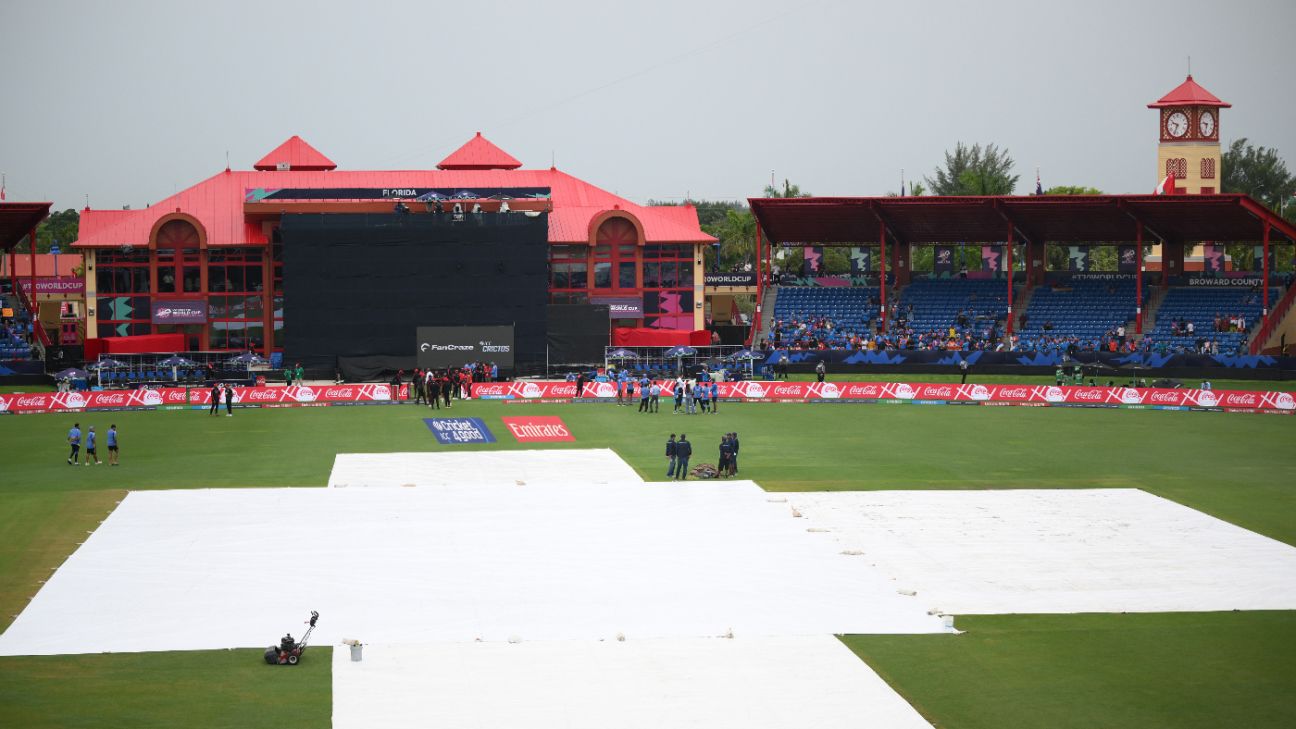Discover why Lauderhill’s Dry cricket ground faced washouts despite no rain, prompting serious questions about the venue’s preparedness for play. Dive into the debate, learn about the consequences, and explore potential solutions.
It’s a baffling scenario for cricket fans and players alike: a bright sunny day with no rain in sight, yet the match is called off due to a wet outfield. This perplexing situation unfolded recently at Lauderhill, raising eyebrows and sparking a flurry of questions about the ground’s preparedness. How can there be no rain, but still no play? Let’s dive into this curious case and examine the factors contributing to these unexpected washouts.
The Curious Case of Lauderhill’s Dry: No Rain, But Still No Play
A Sunny Day Gone Awry
Imagine showing up for a cricket match under a clear blue sky, only to find the outfield too wet for play. This isn’t a scenario one would expect, especially not in Lauderhill, Florida. Recently, several matches at this renowned cricket venue were canceled or delayed due to wet conditions, despite the absence of any rainfall. Fans, players, and officials are scratching their heads, asking: what’s going on here?
Ground Preparedness Under Scrutiny
The Lauderhill washouts have shone a spotlight on the preparedness of the ground. How can a venue, expected to host high-profile matches, fail so spectacularly in maintaining playable conditions? Let’s break down the possible reasons behind this debacle.

Factors Behind the Washouts
Inadequate Drainage System
One of the primary culprits behind the soggy outfield is an inadequate drainage system. Even without rain, factors like high humidity, dew, and the possibility of underground water seepage can leave the ground wet. A well-prepared venue would have a robust drainage system to handle such conditions, ensuring the field is ready for play. Unfortunately, Lauderhill seems to have fallen short in this department.
Poor Ground Maintenance
Ground maintenance is more than just mowing the lawn. It involves regular checks, aeration, and ensuring the soil composition allows for quick absorption and evaporation of moisture. In Lauderhill, lapses in regular maintenance could have led to the persistent dampness, rendering the field unplayable.
Over-Reliance on Weather Forecasts
It appears there was an over-reliance on weather forecasts, with ground staff perhaps not anticipating the need for proactive measures on days forecasted to be dry. Weather forecasts can be unpredictable, and relying solely on them without considering on-ground conditions can lead to such unexpected washouts.
The Impact on Cricket and Fans
Disappointment for Fans
Fans flock to matches, sometimes traveling great distances, to see their favorite teams and players in action. Canceling a match due to wet outfield on a sunny day is not just disappointing—it’s frustrating. This issue has tarnished Lauderhill’s reputation, leaving fans and teams questioning the ground’s reliability for future fixtures.
Financial Repercussions
The financial implications of such washouts are significant. Ticket refunds, logistical rearrangements, and the potential loss of sponsorships can strain the finances of organizers and teams. Moreover, repeated issues like these can deter future events from being scheduled at the venue, leading to long-term financial losses.
Addressing the Issue: What Needs to Be Done?
Upgrading the Drainage System
First and foremost, Lauderhill must invest in upgrading its drainage system. This includes installing more effective sub-surface drains and ensuring they are well-maintained. A robust drainage system can mitigate the risk of washouts, regardless of rain.
Regular Ground Maintenance
Implementing a rigorous ground maintenance schedule is crucial. This should involve frequent aeration, soil testing, and ensuring that the grass type and soil composition are conducive to quick drying. Proper maintenance can prevent the build-up of moisture and keep the outfield in playable condition.
Proactive Measures
Ground staff should adopt proactive measures, such as using covers or rollers to manage dew and moisture. They must not solely rely on weather forecasts but continuously monitor on-ground conditions to anticipate and address potential issues.
Enhanced Communication
Improving communication between ground staff, match officials, and teams can ensure that everyone is on the same page regarding ground conditions. This can help in making informed decisions and avoiding unnecessary delays or cancellations.
Frequently Asked Questions (FAQs)
Why were matches in Lauderhill canceled despite no rain?
The matches were canceled due to a wet outfield, caused by inadequate drainage and poor ground maintenance, rather than actual rainfall.
What is the importance of a drainage system in a cricket ground?
A good drainage system ensures that water is quickly removed from the field, preventing soggy conditions that can make the ground unplayable.
How can ground maintenance prevent such issues?
Regular ground maintenance, including aeration, soil testing, and ensuring proper grass type, helps in quick drying of the field, preventing damp conditions.
What are the financial impacts of washouts?
Washouts can lead to ticket refunds, logistical issues, and loss of sponsorships, causing significant financial strain on organizers and teams.
Conclusion
The Lauderhill washouts have sparked serious questions about the ground’s preparedness. No rain, but still no play? It’s a wake-up call for venue managers everywhere. Investing in better drainage systems, regular maintenance, and proactive measures can prevent such embarrassing situations. As fans, teams, and officials look forward to future matches, it’s imperative that Lauderhill addresses these issues promptly. The reputation of this beloved cricket venue hinges on its ability to ensure that, rain or shine, the game can go on.
Read about all cricket teams : Top most cricket teams
Read interesting facts about all player


